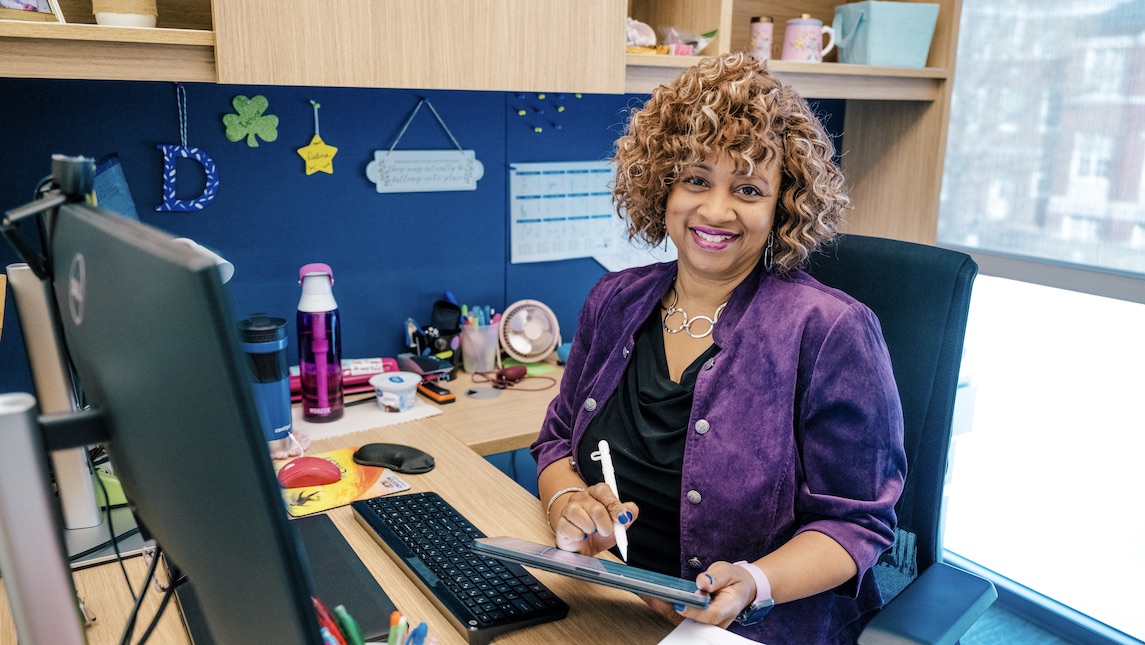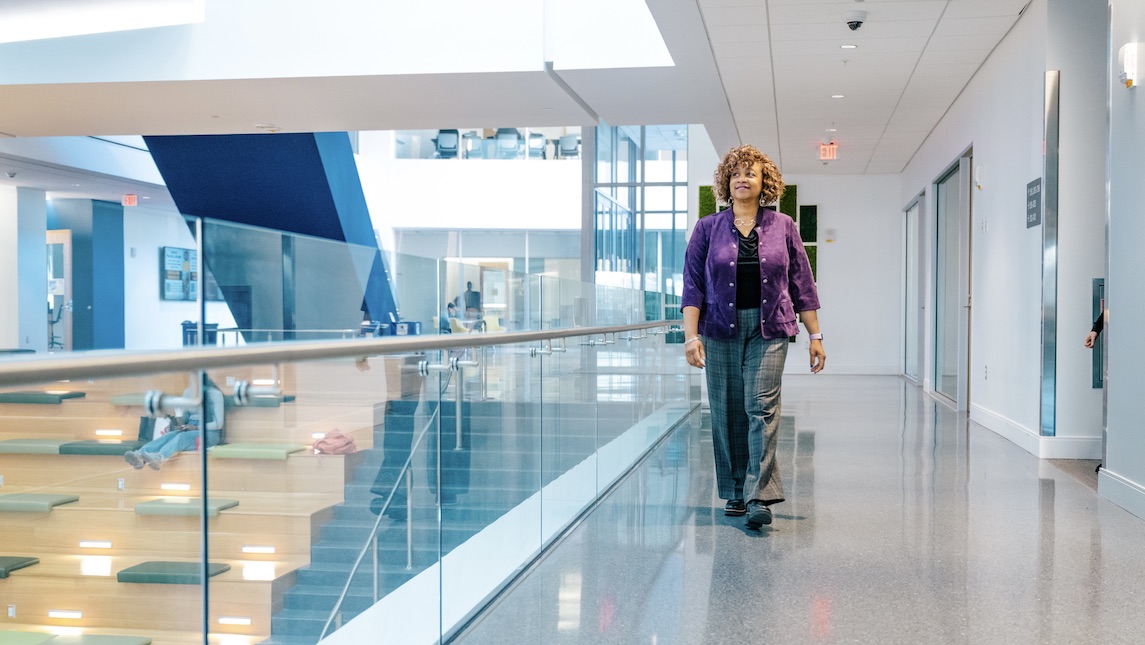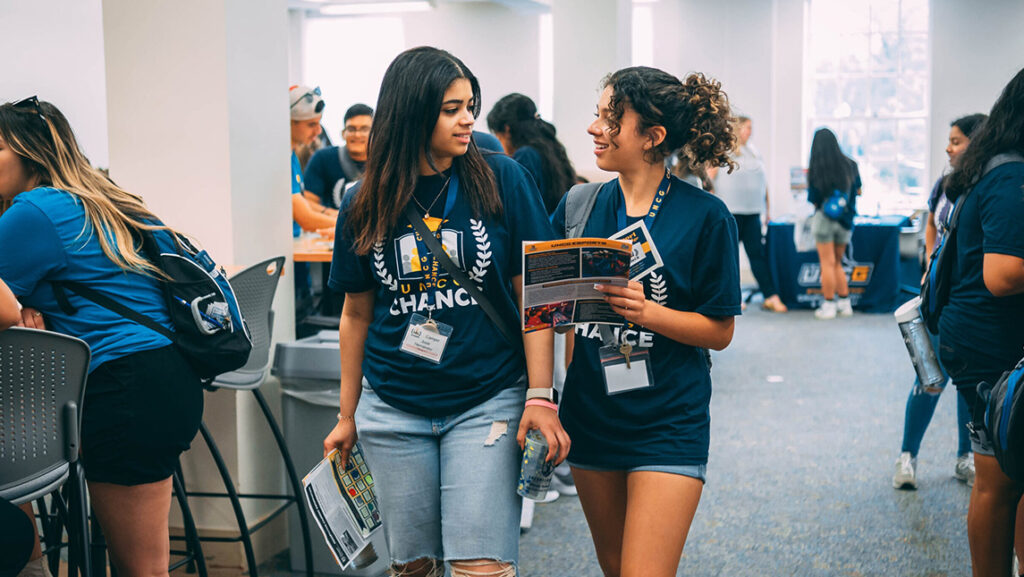Diabetes is one of the costliest U.S. medical conditions, carrying an estimated economic burden of $419 billion in 2022 alone and accounting for about $1 out of every $4 spent on health care. University of North Carolina Greensboro alumna and nurse scientist Debra Neblett ’91, ’22 Ph.D. hopes to help change that.
“Working as a nurse practitioner, I saw firsthand individuals who just didn’t quite understand the disease process or how to manage it – and sometimes didn’t even understand what type 2 diabetes was or what self-care activities were needed to manage this chronic condition,” she says.
Compelled to find answers, Neblett enrolled in a Ph.D. in nursing program at UNCG in 2018 and began exploring the relationship between type 2 diabetes self-care and distress among non-Hispanic Black adults.
Self-care, she explains, is the daily activities that people with diabetes do to manage the disease, whether that’s watching their weight, monitoring their blood glucose, keeping up with their provider visits, and more. Diabetes distress refers to patients’ emotional response to living with diabetes, whether that’s a sense of helplessness or hopelessness related to managing a chronic condition that requires daily attention.
Now a postdoctoral scholar in UNCG’s School of Nursing, Neblett continues to search for answers, and she’s developing interventions that could help improve outcomes, especially for underrepresented patients.
Neblett’s path to research
Had it not been for her years of clinical experience, Neblett says, she would never have imagined herself as a researcher. Ever since she graduated from UNCG with a bachelor of science degree in nursing in 1991, Neblett has been a registered nurse.
She’s also earned a master’s degree in nursing from the University of North Carolina at Chapel Hill, and she’s been a nurse practitioner in pulmonary medicine, occupational health, and internal medicine.
Neblett entered academia in 2006 as an N.C. A&T State University adjunct clinical instructor for a new program for surgical technicians who wanted to pursue bachelor in nursing degrees. She continued to advance in the ranks at N.C. A&T. While in a clinical role, she also had an opportunity to serve on Cone Health’s research council.
While on the research council, she saw gaps in patients’ care, and she wanted to help fill in those gaps.
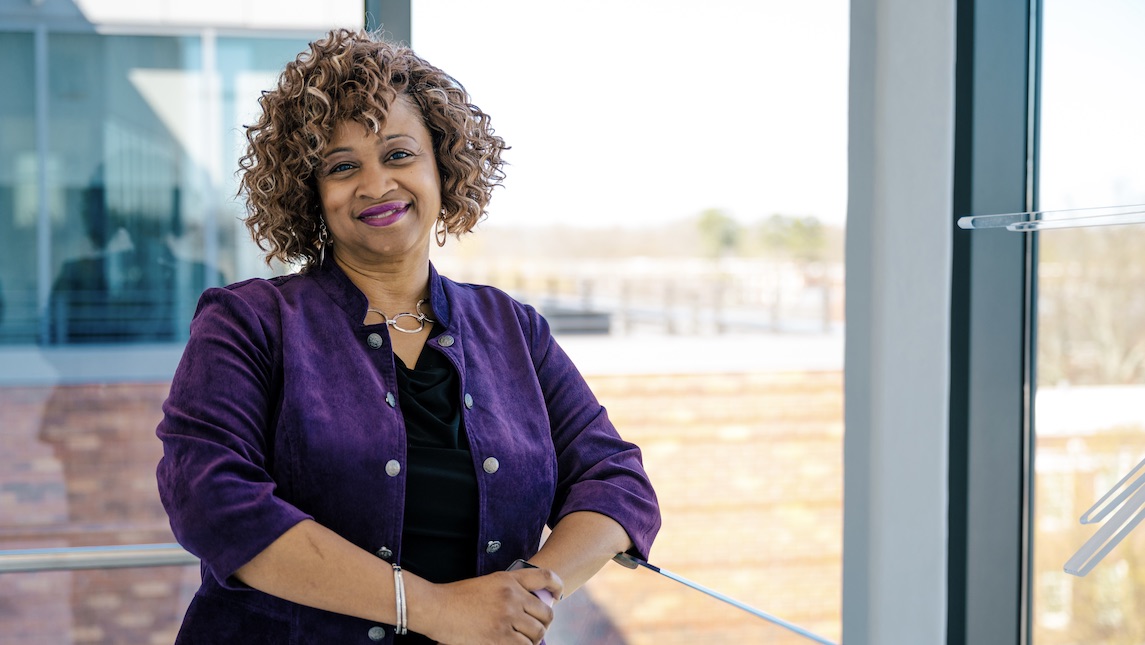
Heading Back to School
Neblett’s questions led her back to graduate school in 2018, this time for her doctorate at UNCG.
“As a clinician and now a developing nurse scientist, I see where research is important, first, to assess what the problem is and then to develop interventions,” Neblett says. “Not just general interventions, but interventions that are specific to the population and that are culturally appropriate for the patient — that meet them where they are and that are sustainable.”
Just as Neblett had seen gaps in care among people with type 2 diabetes, she saw gaps when she reviewed case studies and other scientific literature, particularly related to the assessment of self-care of diabetes and diabetes distress for non-Hispanic Black adults.
While type 2 diabetes is more prevalent in non-Hispanic Black adults than it is in the general population, Neblett found that challenges related to self-care of diabetes and diabetes distress were similar.
“Regardless of your background, your ethnicity, diabetes is challenging to manage,” she says.
To Neblett’s surprise, doing more self-care was associated with more distress among those in the non-Hispanic Black population she studied.
“So even though they were doing more, their hemoglobin A1C, which is the marker to monitor how blood glucose control is in the body, was not at goal,” she explains.
“This is making me think, ‘What else is going on? What other factors could be influencing their ability to manage diabetes? Other social determinants of health? Other stressors in their lives? Health inequities?’,” Neblett says. “Different factors may be at play in particular populations other than the typical activities of self-care.”
What’s Next?
Neblett is thriving as a postdoc and appreciates the guidance of her mentoring team, Debra Wallace, Daphine Doster Mastroianni Distinguished Professor and associate dean for research and academic advancement; Thomas McCoy, clinical professor and statistician; and Dean Debra Barksdale.
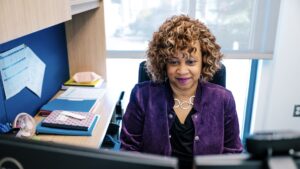
“As a student, I was amazed at the passion, knowledge, and expertise of Dean Barksdale and the faculty and staff here. My transition from doctoral student to a postdoctoral scholar has been phenomenal.”
As Neblett begins her second year as a postdoc, she’s publishing manuscripts, writing grant proposals to conduct interventional pilot studies aimed at helping Black adults with type 2 diabetes manage their self-care and distress, and developing a research team.
To overcome challenges in recruiting underrepresented populations for research, Neblett has found it important to engage with and establish connections with community partners. She partnered with churches, professional nursing organizations, nurse-practitioner-owned practices, a barbershop, a hair salon, sororities, and a fraternity.
Partnerships Are Key
Because of these connections, over 50% of the sample in the study conducted were Black men, which is atypical in research studies. She plans to leverage and expand such partnerships in her future research.
“Getting their feedback, not just when it’s over, but even in early developmental stages is key,” she says. “Something I definitely want to grow into is developing community advisory boards that are involved from the start, in understanding the needs of the community, in development and recruitment, and throughout the research process.”
While diabetes education is important, she says, it isn’t always enough to help the patient effectively manage the disease. That’s why, she says, she’ll continue searching for answers, not just in the scientific literature but in the experiences of people living with diabetes.
“The foundation of nursing is looking at the whole person – not only what is going on physically within their diagnosis, but what’s going on with them from a holistic standpoint, their mind, body, and soul,” Neblett says.
“And it’s not just giving individuals medications and saying, ‘Eat this, do this exercise five times a week, decrease your carbohydrates.’ We must explore their experience and what else could be impacting their ability to self-manage.”
Story by Dee Shore and Amy Burtch, AMBCopy
Photography by Sean Norona, University Communications
